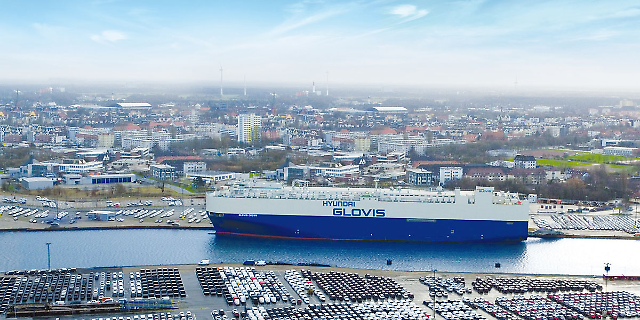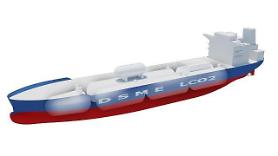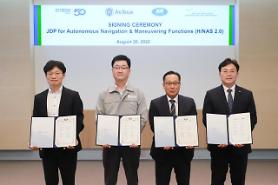
[Courtesy of Hyundai Glovis]
Hyundai Glovis, the logistics wing of Hyundai Motor Group, said that a ship capable of carrying 74,000 cubic meters of liquefied carbon dioxide (LCO2) has obtained Approval in Principle from the American Bureau of Shipping (ABS), a classification society based in the United States, and a Marshall Islands agency.
Hyundai Glovis has calculated ship specifications and a maximum volume of shipments suitable for many ports. The Hyundai Heavy Industries Group has upgraded cargo storage and operating systems that can stably preserve cargo by maintaining tank pressure. The ship was designed to maximize its load.
Hyundai Glovis said that new steel would be applied to maintain high-pressure and low-temperature conditions, which are essential to safely transport large amounts of LCO2. "As a global shipping company, we will participate in efforts to achieve carbon neutrality around the world through the world's largest LCO2 carrier," an unnamed Hyundai Glovis official said in a statement on September 6.
South Korean shipbuilders saw climate change as a new opportunity for growth, citing a growing demand for negative emission technology to reduce greenhouse gases by capturing carbon. The Hyundai shipbuilding group has disclosed a project to develop a vessel that can transport liquefied CO2 from power plants and steel mills to storage facilities.
In April 2022, an LCO2 carrier designed by Daewoo Shipbuilding & Marine Engineering (DSME) obtained basic approval from ABS for use in the food industry. The vessel capable of carrying 70,000 cubic meters of LCO2 is powered by liquefied natural gas. DSME's vessel is 260 meters long and 44m wide. The shipbuilder is also developing new materials for an LCO2 storage tank.
Copyright ⓒ Aju Press All rights reserved.



